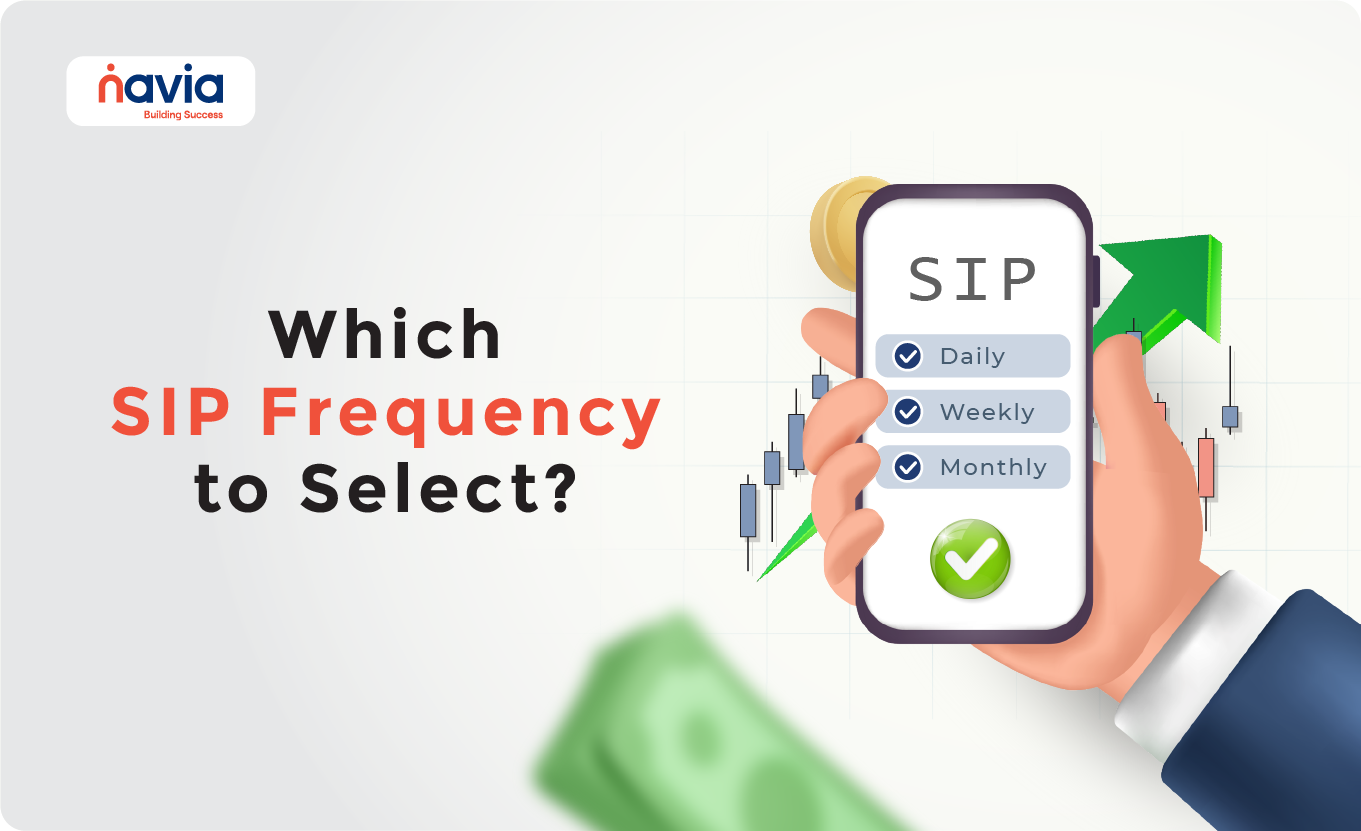Which SIP Frequency to Select?

When starting a Systematic Investment Plan (SIP), investors often wonder whether daily, weekly, or monthly SIPs are more profitable. The SIP study by White Oak Capital Mutual Fund provides valuable insights on this frequently asked question.
Successful SIP: The Smart Investor’s Choice!
A successful SIP is more about “Starting Early”, maintaining the discipline of “Investing Regularly”, investing for the “Long Term” to achieve our “Financial Goals” and less about “Which Date”, “Which Frequency”, “At what stage of the Market Cycle” etc.

Data Overview: SIP Frequency Comparison
| SIP Frequency | SIP Instalment Amount (₹) | Total Amount Invested (₹) | Current Valuation (₹) | XIRR (%) |
| Daily | 1,000 | 68.82 Lac | 7.81 Crore | 14.61% |
| Weekly | 4,753 | 68.82 Lac | 7.83 Crore | 14.60% |
| Monthly | 20,667 | 68.82 Lac | 7.85 Crore | 14.59% |
Key Insights:
Similar Returns Across Frequencies:
● The XIRR (Extended Internal Rate of Return) difference between daily, weekly, and monthly SIPs is marginal, indicating that the investment frequency has little impact on long-term returns.
● Monthly SIPs offered the highest valuation at ₹7.85 Crore, though the difference was negligible compared to daily or weekly SIPs.
Simplicity Over Complexity:
● Managing multiple SIPs, especially daily ones, can be operationally complex due to frequent debits and potential administrative issues.
Cost Averaging Impact:
● While more frequent SIPs theoretically provide better cost averaging, in practice, market fluctuations even out over time.
Best Approach:
● Since the return differences are negligible, selecting a monthly SIP is a simpler and more efficient strategy for most investors.
Inference:
The historical data suggests that SIP frequency—whether daily, weekly, or monthly—does not significantly impact long-term returns. The critical factor is maintaining investment discipline and investing regularly over a long period.

Conclusion:
Investors should focus on starting their SIPs early, maintaining discipline, and investing regularly. Whether you choose daily, weekly, or monthly SIPs, the long-term returns remain nearly identical. Thus, it’s more important to select a frequency that aligns with your cash flow and convenience.
Disclaimer: Data and calculations are based on historical returns from the BSE Sensex TRI index between September 1996 and May 2024. Past performance is not indicative of future returns. Consult a financial advisor for personalized investment decisions.
Do You Find This Interesting?
DISCLAIMER: Investments in the securities market are subject to market risks, read all the related documents carefully before investing. The securities quoted are exemplary and are not recommendatory. Brokerage will not exceed the SEBI prescribed limit.






